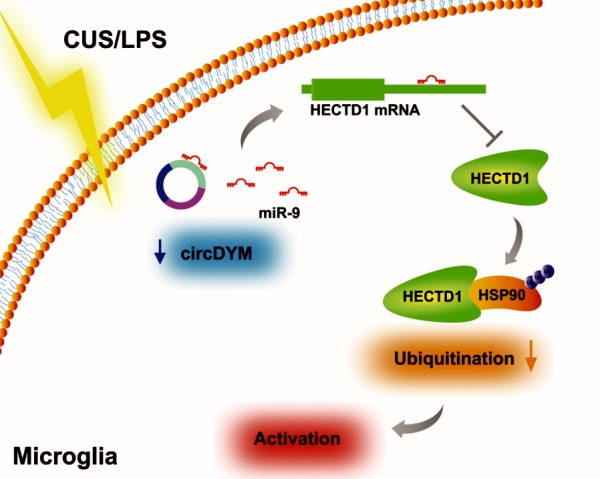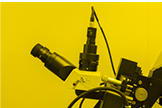
The Research Team Led by Professor Yao Honghong from the School of Medicine of Southeast University and the Research Team Led by Professor Zhang Zhijun and Researcher Xie Chunming from Zhongda Hospital Affiliated to Southeast University published their innovative research achievement titled “CircDYM ameliorates depressive-like behavior by targeting miR-9 to regulate microglial activation via HSP90 ubiquitination” in Molecular Psychiatry, a journal specializing in pathergasiology under the publishing group Nature.
This study has probed into the mechanism of circular RNA DYM (circDYM) and its pathway in depression and the value of potential biomarkers in a systematical manner.The study found that the expression level of circDYM was significantly lowered in depression-like mice, and the same to circDYM in the blood of patients suffering from depression. Besides, the lower level of circDYM was, the higher score of early negative live events would be and the patients would have more severe depressive symptoms. The discovery of circDYM is expected to become an objective diagnostic marker for depression based on a large number of clinical samples and data support, and it is also of great significance for the development of new drugs.
The clinical research has been well combinedthe basic researches under the guidance of Professor Yao Honghong, Professor Zhang Zhijun and Researcher Xie Chunming. Among others, young teachers Zhang Yuan and Bai Ying, graduate students Du Longfei, Han Bing and He Cancan are the co-first authors. Their work has been funded by Key Research and Development Program under the Ministry of Science and Technology and the Excellent Youth Fund under National Natural Science Foundation. The publication of this study has further clarified the epigenetic mechanism of depression, identified the candidate biomarkers and provided empirical evidences for the selection of new targets for antidepressants.
Online published: 2018 Nov 9. doi: 10.1038/s41380-018-0285-0. [Epub ahead of print]
https://www.ncbi.nlm.nih.gov/pubmed/30413800
















